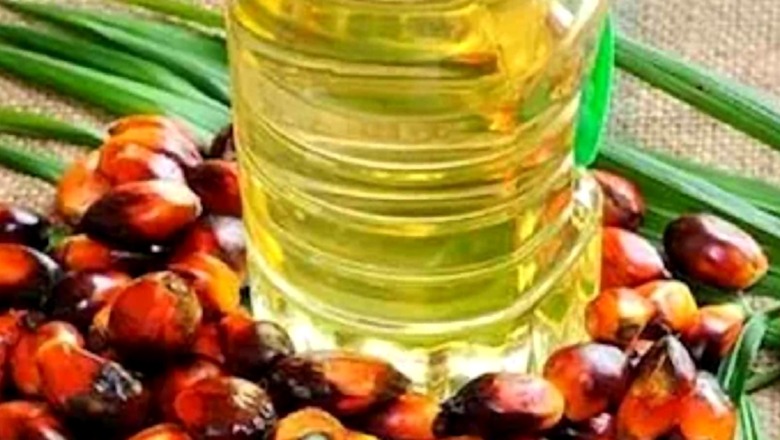
views
After almost a month of announcing a ban on palm oil exports, the Indonesia government has lifted the restriction effective Monday (May 23). The Southeast Asian country accounts for over 50 per cent of the world’s supply of palm oil. Analysts said the move is expected to cool down the prices of edible oil in India on the back of increased supply.
Why Did Indonesia Ban Palm Oil Exports?
Indonesia last month announced the ban on the export of palm oil with effect from April 28, in the wake of a severe shortage and skyrocketing prices of edible oil in the Southeast Asian nation. The country is the biggest palm oil producer in the world. The world cooking oil supply was in a huge supply deficit due to the Russia-Ukraine war, driving prices of palm and soy oils to record highs.
Ban Impact On India?
India is the largest importer of palm oil in the world and is dependent on Indonesia and Malaysia for its demand. India imports over 13.5 million tonnes of edible oil every year, out of which, 8-8.5 million tonnes (around 63 per cent) is palm oil. Now, nearly 45 per cent comes from Indonesia and the remaining from neighbouring Malaysia. India imports roughly 4 million tonnes of palm oil from Indonesia each year.
As the supply got halted after the ban, the prices of edible oil in India increased, which led to the price hike pressure on various products. Palm oil and its derivatives are used in food products, detergents, cosmetics and biofuels. These are used to manufacture several daily consumption goods such as soaps, margarine, shampoos, noodles, biscuits and chocolates. So, any rise in palm oil prices will push up the input costs across these industries.
Likely Impact On Lifting of Ban?
The availability of edible oil in India will increase as new imports will start coming in following the lifting of the export ban by the Indonesian government. This is expected to cool the prices of edible oil in India, apart from easing of price hike pressure on various items.
India Ratings and Research in its report said, “If the ban is lifted, the likely increase in output in the current year should help moderate the prices over the course of the year.” It, however, said prices are likely to remain elevated amid a strong demand.
It added that measures such as setting limits on the land area for new palm oil plantation and the Biodiesel policy of Indonesia, encouraging palm oil-based biodiesel to be blended with crude oil to reduce the country’s imports, can have a structural bearing on the demand-supply dynamics.”
India Ratings had also said the ban by Indonesia was a short-term measure to bring immediate relief from the high prices and supply issues in Indonesia, and a complete ban on the export of palm oil could be difficult to sustain as the country’s domestic consumption is around 17mnt, less than 40 per cent of its annual production of close to 45mnt.
Read all the Latest Business News here




















Comments
0 comment